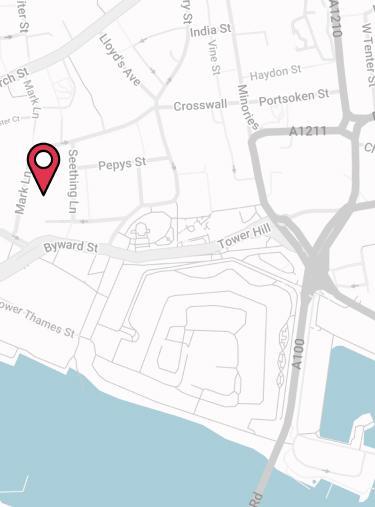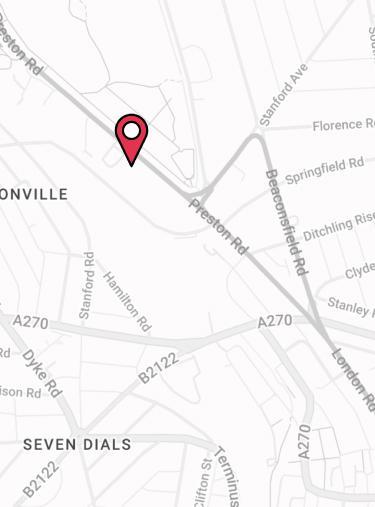
Being your own boss is rewarding, but it often means you don’t receive the same benefits as a permanent employee, such as sick pay. This is where Self Employed Income Protection comes into play.
But what exactly is it, and do you really need it? We’ll explain all you need to know in this specialist guide.
What Is Self-Employed Income Protection?
Self-Employed Income Protection Insurance provides you with a monthly income if you’re unable to work due to accident or illness. The benefit payments are designed to cover your core monthly outgoings, such as rent/mortgage, household bills and childcare costs. You can also take out coverage to maintain your standard of living, rather than just the essentials.
Typically, a policy will:
- Pay a tax-free monthly benefit if you ever can’t work through illness or injury
- Protect up to 70% of your gross (pre-tax) income
- Cover you if you can’t do your specific role (if you you choose “own occupation” cover
- Pay out from as short as one week off work due to accident or sickness
- Pay out right up until you retire when you choose long-term protection.
Why Is Self Employed Income Protection Insurance Important?
Self-employment brings its own set of hurdles when it comes to financial security – the most obvious being the lack of traditional safety nets such as sick pay. That’s why it’s vital to safeguard your earnings as a self-employed person.
Self-Employed Sickness Insurance offers you financial stability should you be unable to work due to accident or sickness. It provides peace of mind, allowing you to focus on your recovery without the burden of financial stress.
According to consumer group Which?, Income Protection Insurance is the one policy every working adult should consider.
How Does Self-Employed Income Protection Work?
Self-Employed Income Insurance works in much the same way as a personal policy. If you’re unable to work due to accident or sickness, your insurer pays out a monthly benefit until you’re well enough to return, covering your monthly outgoings in the meantime.
The difference is in how the policy is paid for. If you operate through your own limited company, you can opt for Executive Income Protection, where your company pays your premiums through your business account rather than out of your own bank account. Because of this, there are some tax benefits which we’ll explore later.
If you’re a sole trader without a limited company, premiums typically aren’t classed as a business expense. Because of this, you’ll need to opt for a personal Income Protection policy.
What Does Income Protection For Self-Employed Cover?
Self-Employed Sickness Insurance is a highly comprehensive form of protection. It covers almost every medical condition that prevents you from working, including (but not limited to):
- Back conditions and other musculoskeletal issues
- Depression and mental health conditions
- Heart attacks and heart disease
- Cancer, stroke and other serious illnesses.
Are There Any Exclusions?
As with all types of insurance, there are some blanket exclusions which apply to everyone.
For example, you can’t usually claim for illnesses / injuries sustained via:
- Criminal activity
- Illegal / illicit drug use, substance abuse or alcohol misuse
- Overseas travel to areas of active internal conflict, high terrorism risk, political instability or countries the Foreign and Commonwealth Office (FCO) has advised against visiting.
Does It Cover Pre-Existing Conditions?
When you set up your Self-Employed Income Protection, the insurer will ask you to declare any existing medical conditions. If you have any pre-existing conditions, the insurer will do one of the following depending on the severity:
- Cover the condition on standard terms (you won’t face any difference in price or terms compared to a healthy individual)
- Cover the condition for an additional premium
- Exclude the condition but offer a date at which it will consider reviewing the exclusion
- Exclude that condition entirely (perhaps with a premium discount to compensate).
Getting cover for a pre-existing condition can be tricky. Fortunately, our team of specialists know the UK market and each insurer inside out. So we understand which Self-Employed Income Protection Insurance policies may offer more lenient terms depending on your circumstances.
That’s why it’s worth talking things through with a specialist – give us a call on 02084327333 or email us at help@drewberry.co.uk.
Additional Benefits And Support Services
Another important area of comparison is the additional benefits on offer from various Income Protection Insurance providers. These services are almost always free, and provided alongside the core Accident And Sickness Insurance.
These additional services are designed with overall wellness in mind, reducing the chances of you needing to claim, or helping speed up your recovery if you’re ill. Additional benefits may include:
- 24/7 Virtual GP service
- Prescription service
- Medical helplines
- High street discounts
- Discounts on gym memberships / fitness trackers
- Second medical opinion service.
Many of the services above are available to not only you as the policyholder, but also your immediate family, such as your spouse / civil partner or dependent children.
Income Protection Client Stories
Do I Need Income Protection If I’m Self-Employed?
Whether you need protection is down to your own personal circumstances. Before deciding, ask yourself:
- Could you continue to cover your monthly outgoings if your income stopped?
- Could you survive on savings or state benefits?
- What are the actual risks of you becoming ill?
Are Self-Employed People Entitled To Statutory Sick Pay?
A full-time employee is usually entitled to up to 28 weeks of Statutory Sick Pay from their employer if they’re off sick, worth £118.75 per week. Some employers offer more, but this is the legal minimum.
If you’re self-employed and need to take time off work due to sickness, you may be able to claim government incapacity support, known as Employment and Support Allowance. This is up to £92.05 a week for over 25s.
There are other government benefits available depending on the severity of your illness. However, these are rarely sufficient to replace the average weekly UK household expenditure of £567.70 (2022/23).
What’s The Risk of Getting Sick Or Injured?
While it’s not always nice to think about, illness and injury can strike at any time. Between October and December 2023, around 2.7 million people were ‘economically inactive’ due to long-term sickness. These are long-term disabilities that go beyond your usual coughs and colds, or even broken bones, requiring several months off work.
That’s why Self-Employed Insurance for Sickness and Injury is so important. If you’re working for yourself, you have less government support than someone in full time employment, as well as fewer employee benefits.
This is why self-employed finance blogger Mrs Mummypenny took out Income Protection Insurance. She wanted the valued peace of mind that you and your family get when you know your monthly income is protected.
What To Consider Before Buying Self-Employed Income Protection
There are a number of factors to consider when taking out Self-Employed Income Protection Insurance. These will impact what your policy looks like and how much it costs. Here are the key things you need to think about.
How Much Cover Do You Need?
The level of cover is the monthly amount that will be paid out should you need to claim. The higher the figure, the more your premiums will cost.
You can insure a maximum of 70% of your gross (pre-tax) self-employed income. Though most providers will insure between 50% and 60% of your income.
If you’re a sole trader, you can figure out your gross income by taking your total revenue and subtracting business costs (e.g. materials). This is the figure on which you pay tax, and therefore on which you should decide your level of cover.
What Deferred Period Should You Choose?
A deferred period refers to how long you can wait for the insurer to pay out. The longer your deferred period, the lower your premiums.
For example, a 13 week deferred period can cut premiums by up to 50% when you compare it to a four week deferred period. The shortest deferred periods are one week, while the longest are 12/24 months.

By extending the deferred period of your Income Protection policy (to align with your savings or any available sick pay), you can significantly lower your monthly premiums.
Just make sure you won’t be struggling in the meantime. Your financial buffer should be robust enough to support you during this extended waiting period before benefits kick in.
Rauri Taylor
Independent Protection Specialist
How Long Should Your Cover Last?
You’ll need to set an age for your Self-Employed Income Protection policy to end. The older you are when the policy ceases, the higher your premiums will be. Some providers don’t alter the starting premium by a huge amount (if at all) but the overall cost will be higher due to the longer term of the policy.
Usually, you’ll align the policy cease age to your retirement age, or when you expect to be financially secure. Many providers offer a cease age up to 70.
Do You Need Short Term Or Long Term Cover?
In the event of a claim, short term cover will pay out for a limited amount of time, regardless of whether you’re well enough to return to work. Long term cover will continue to pay out until the end of your policy should you not return to work.
- Short term cover
Short-term policies only pay out for up to one, two or five years per claim. While it’s a cheaper option, a time limit works against you if your illness prevents you from ever returning to work, such as a serious injury after a road traffic accident or stroke. - Long term cover
Long-term cover, on the other hand, can last right up until retirement age. It’s more expensive, but pays out for the long run if your illness or injury stops you from working again.
Considering leading insurer Aviva had an average claim length of six years and nine months in 2023, it makes sense to pick long term cover if your budget allows.
Should You Choose Guaranteed Or Age Banded Premiums?
Your premium type determines the cost of your insurance. When taking out Self-Employed Injury Insurance, you have a number of premium types to choose from:
- Age-banded
Your premiums will rise each year in line with your age, based on a preset amount in your policy documents. The increase is solely linked to your age and the growing risk of you claiming as you get older - Reviewable
Insurers can adjust rates as deemed necessary, potentially increasing due to factors like a rise in claims or economic changes. While initially more affordable, these premiums can become costlier over the duration of the policy - Guaranteed premiums
The insurer cannot increase premiums unless you change the plan. While this has its benefits, it’s not suitable for everyone. For instance, manual workers often get better rates with age-banded premiums, so don’t discount anything until you’ve examined all your options.
Guaranteed premiums cost more and may not be available for some high-risk roles. The best premium type will come down to your current occupation and your budget.
What Definition Of Incapacity Should You Choose?
Another important factor to consider when taking out Self-Employed Income Protection is the “Definition of Incapacity” a provider uses. This is what an insurer uses to determine whether you’re fit enough to return to work.
There are three different types that you’ll come across. The one you choose will affect the success of your claim, so it’s crucial to understand the differences.
- Own Occupation
Imagine you’re an architect, and a hand injury keeps you from bringing your blueprints to life. That’s where Own Occupation Cover steps in, offering protection specifically when you can’t perform in your unique role due to injury or illness. As a definition it ensures your specific skills are safeguarded. - Suited Occupation
To qualify for a payout under this particular definition, you need to be unable to perform not only your current job but also any other role for which your experience has prepared you for. So, if you can’t fulfil your present responsibilities but are capable of working in another position that aligns with your skill set, Suited Occupation cover won’t kick in. - Any Occupation / Work Tasks
Claiming under this category means proving you’re unable to engage in any work or perform basic job-related tasks. It’s the broadest form of cover, designed for those who find themselves unable to undertake any form of employment. While it offers the widest net, it’s also the most challenging to claim, so tread carefully.

We always recommend Own Occupation Cover because it provides the most comprehensive and specific protection.
This type of cover ensures that if you’re unable to perform in your specific professional role due to illness or injury, you’re eligible for support. With the other definitions, claiming may not be as straight forward.
Samantha Haffenden-Angear
Independent Protection Specialist
How Much Does Self-Employed Income Protection Cost?
What you pay for Income Protection when self-employed will depend on a number of personal and policy factors. To give you an idea of cost, we’ve provided some monthly premium examples below. These are based on:
- A healthy 35 year old
- Non-smoker
- In an office based job
- Four week deferral period
- £2,000 monthly payout
- Long term cover that ceases at age 65.
We calculated these prices using our Income Protection quote tool.
What Affects The Cost Of Self-Employed Income Protection?
There are a number of different factors that affect the cost of your self-employed Income Protection. Some which are in your control (such as the provider you choose and your policy options), and others which will depend on your personal circumstances.
Provider
The first thing to bear in mind is that each provider will charge you different premiums, even if the cover is pretty much identical. This is because each will have their own appetite for risk and charge differently based on this.
| Provider Price Comparison | |
|---|---|
 |
 |
| £49.22 | £53.28 |
Quotes correct as of August 2025
Deferred Period
The longer the deferred period you opt for, the cheaper your premiums will be. Based on the above policy options, we’ve provided example costs from Aviva for various different periods below.
| Deferred Period Price Comparison | ||
|---|---|---|
| 4 weeks | 8 weeks | 13 weeks |
| £49.22 | £39.35 | £26.79 |
Quotes correct as of August 2025
Short Term Vs Long Term Cover
The level of cover you choose will also impact cost. For example a short term policy will be cheaper than a long term one. However, it’s important to remember that short term policies won’t provide the same comprehensive cover as a long term policy.
| Cover Length Price Comparison | |
|---|---|
| 2 year cover | Cover to age 65 |
| £19.67 | £49.22 |
Quotes correct as of August 2025
Your Age
As we get older, we become more likely to suffer an injury or fall ill. Older people therefore face higher Income Protection Insurance premiums. The earlier you take out a policy, the cheaper it is.
| Age Price Comparison | ||
|---|---|---|
| 35 years | 40 years | 45 years |
| £44.98 | £49.22 | £62.88 |
Quoted correct as of August 2025
Smoker Status
Being a smoker means you’re more likely to get ill, and more seriously ill, than a non-smoker. Most insurers (although not all) charge smokers higher premiums.
| Smoking Price Comparison | |
|---|---|
| Smoker 🚬 | Non-smoker 🚭 |
| £71.94 | £49.22 |
Quotes correct as of August 2025
Your Health / Medical History
Depending on your health and insurer, you may face higher premiums if you have a pre-existing condition or an adverse medical history.
Your Occupation
Some jobs involve more risk than others. For example, manual workers are more likely to have an accident on the job than office workers. The physical nature of manual work also means you’re more likely to be unable to work due to an illness or injury.
For this reason, those in riskier jobs pay more for their Self-Employed Income Protection Insurance than those in less dangerous roles such as office workers.
How Does HMRC Tax Self-Employed Income Protection?
Tax for Self Employed Income Protection will depend on how you work and how you pay for the policy.
For Company Directors and Contractors
If you work through your own limited company as a contractor or director, there are executive policies where your company can pay for the Income Protection Insurance.
In this case, premiums are eligible for corporation tax relief. Instead, HMRC taxes the payout when you make a claim. It’s therefore important to insure yourself for a higher figure so you get the correct net amount of tax (known as “grossing up”) to compensate.
For Sole Traders
If you’re self-employed without a limited company, then there’s no ‘entity’ to own and pay for the policy on your behalf.
Sole traders must pay for Income Protection Insurance personally, from their own bank account. You typically can’t claim protection insurance policies as a business expense.
However, with personal protection, insurers pay claims tax-free as you pay premiums using income HMRC has already deducted tax from.
Is Self-Employed Income Protection A P11D Benefit?
Some benefits that are provided by employers are classed as a P11D / Benefit In Kind by HMRC. What this means is that the employee receiving the benefit has to pay additional tax on it (such as Company Health Insurance).
If your company is paying for your Income Protection, the good news is this particular benefit isn’t classed as a P11D/Benefit In Kind, so there’ll be no additional tax to pay.
How Do I Make A Claim? Will It Pay Out?
When making a claim, it’s best to make the insurer aware as soon as you become too ill or injured to work. You’ll need to complete a claims form and the insurer will assess the medical and financial evidence to approve it.
We have a Support team to support you through this process and make it as smooth as possible so you can focus on your recovery.
Neil’s Cancer Claim With British Friendly
Neil took out a British Friendly Income Protection policy when he was self-employed. He was a member for four years before he needed to claim.
Unfortunately, he became unwell and had pains in his stomach. After consulting his GP and having further tests, Neil was diagnosed with Stage 2 Bowel Cancer and needed to make a claim. Find out more about Neil’s claim.
Which Insurers Pay The Most Claims?
Most self-employed people want to choose cover by picking the insurer that’s most likely to pay out when they need it the most.
However, it’s actually fairly hard to distinguish one provider from another in this area. Payout rates across the industry are not only higher than many assume but are also fairly uniform.
For example, as you can see in the table below, most insurers pay more than 90% of all claims they receive.
Payout statistics alone should not be used to decide which insurer offers the best income protection. Instead, payout rates should be used as a rough guide to compare successful claims across the industry as a whole.
Insurer | 2022 | 2023 | 2024 |
|---|---|---|---|
Zurich | 85% | N/A | 95.8% |
Vitality | 96.5% | 95.4% | 91.9% |
Cirencester Friendly | 95.4% | 95.8% | 95.8% |
Holloway Friendly | 93.4% | 86% | 88.3% |
British Friendly | 90% | 89% | 86% |
Liverpool Victoria | 92% | 92% | 90% |
The Exeter | 92% | 96% | 93% |
Aviva | 92.5% | 90.1% | 92% |
Legal & General | 82.2% | 80% | 84% |
Who Is The Best Self-Employed Income Protection Provider In The UK 2026?
As an independent insurance broker, we compare all of the top UK insurers for our self-employed clients. Where we all have different jobs, varying medical history and lifestyle choices the best insurer truly does depend on your personal circumstances.
That’s because each insurer is different and prefers different risks. For example, some are more competitive for higher-risk / manual occupations, while others are better if you want a longer deferred period.
Be aware that it’s not always the cheapest plan that’s the best — policies and providers vary considerably. One might offer a great deal more coverage than the other, so it pays to shop around.
We compare all the leading UK insurers for our clients to make sure they are getting the most cost-effective cover for their personal circumstances.
Self-Employed Income Protection FAQs
Are self-employed eligible for Income Protection Insurance?
As long as you’re registered with a UK GP and pay income tax and have been a resident in the UK for the last three years, you’re eligible for self-employed cover. However, some insurers require you to have up to 12 months of self-employed earnings to justify the level of cover you need.
If you’re new to self-employment, it’s best to speak to a specialist adviser to ensure your cover is right for you. Call 02084327333 or email us at help@drewberry.co.uk to speak to one of the team.
Is Income Protection Insurance tax deductible?
For a sole trader, Income Protection is paid from net income so claims are paid out tax-free. For contractors or limited company directors, there are options in which premiums are tax deductible.
Is Income Protection for self-employed worth it?
With limited government support and a shortage in savings, Income Protection could well be one of the most important types of cover. It’s the one policy that will cover all your core outgoings should you be unable to work due to any illness or injury.
Compare Self-Employed Income Protection Quotes And Get Specialist Advice
With fluctuations in earnings and often a broad range of work duties, it can be a bit tricky for self-employed workers to set up Income Protection insurance.
That’s why we’re here to make sure you have all the information you need to make an informed decision and arrange the most suitable protection for your needs.
For help comparing quotes and fee-free Income Protection advice, call 02084327333 or email us at help@drewberry.co.uk.
Why Speak to Us?
When it comes to protecting yourself and your finances, you deserve first-class service. Here’s why you should talk to us:
- There’s no fee for our service
- We’re an award-winning independent insurance broker, working with the leading UK insurers
- You’ll speak to a dedicated specialist from start to finish
- 4100 and growing independent client reviews rating us at 4.92 / 5
- Claims support when you need it most
- We’re authorised and regulated by the Financial Conduct Authority. Find us on the financial services register.
Contact Us
125-135 Preston Road
Brighton
BN1 6AF
Cookies
Drewberry™ uses cookies to offer you the best experience online. By continuing to use our website you agree to the use of cookies including for ad personalization.
If you would like to know more about cookies and how to manage them please view our privacy & cookie policy.






















